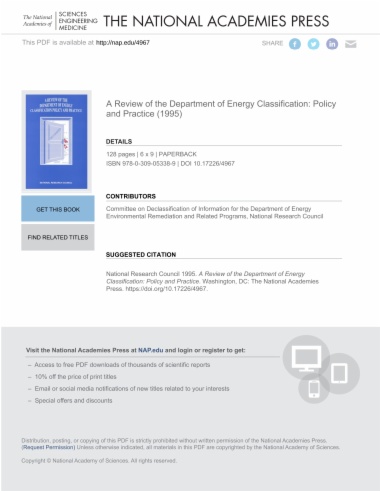

With the end of the Cold War, the Department of Energy is engaged in a review of its policies regarding the classification of information. In 1994, the Secretary of Energy requested the assistance of the National Research Council in an effort to "lift the veil of Cold War secrecy." This book recommends fundamental principles to guide declassification policy. It also offers specific suggestions of ways to improve public access while protecting truly sensitive information.